Why You Should Pair Your Water Heater with a Water Softener
Our next-level water quality team at Save Home Heat Company would like to help you extend the life of your tank type or tankless water heater, along with providing other valuable benefits.
Hardness in your home’s water supply, and its first cousin limescale, can have a significant impact on your home’s plumbing system, even in relatively low levels. Consider the lifetime of your plumbing appliances and the delivery plumbing. Over an extended period of time, the impacts of even low levels of hardness can be numerous and costly. Faucets, showers, valves, and the very piping in your home can experience negative impacts from hard water.
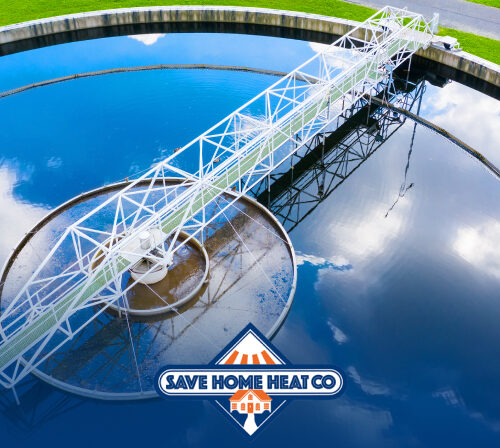
And then there’s one of your largest energy consumers and water handlers in the house – your water heater. None of us like having to replace a water heater before its time, especially as costs for this work are much higher than the standard replacement solutions of 20 to 30 years ago.
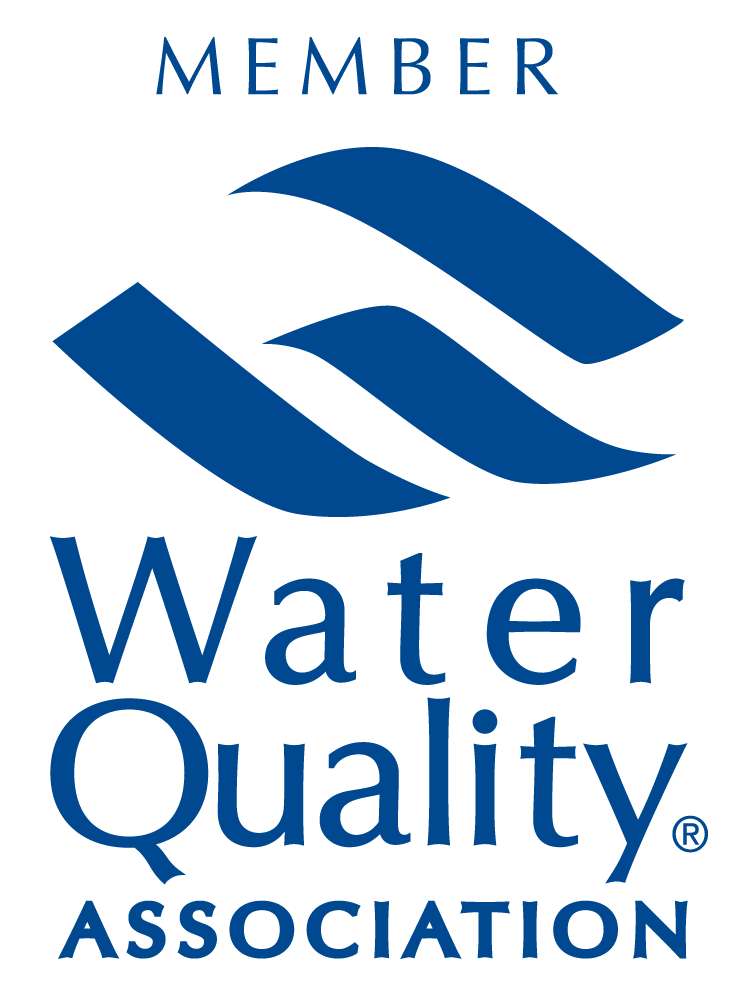
In this post, we’ll present an overview of studies conducted by the Water Quality Association and other respected industry sources, summarizing science and research that indicates a whole-house water softener would be a great companion for your water heater.
On top of that, a water softener can also play a role in helping to improve your health and wellbeing!
What’s Meant by Hard Water?
“Hardness” is a measure of the amount of dissolved minerals in a water supply. In our region, this typically refers to the amount of calcium and magnesium salts suspended in the water. A variety of sources define the hardness measurement as the total amount of calcium carbonate (CaCO3) present, by weight, in a gallon of water.
Hardness measurements are referred to in terms of either “grains” or “total parts per million.” The term “grains” is used most commonly in discussions in the residential market, while “parts per million” is used primarily in a laboratory setting. So when talking about the hardness of your home’s water, Grains Per Gallon (GPG) is how the measurement is normally discussed. For the record – for deeper dive fans – 1 grain of hardness equals 64.8 milligrams of calcium carbonate dissolved in one U.S. gallon of water, which is the equivalent of 17.1 parts per million. ‘Nuff said!
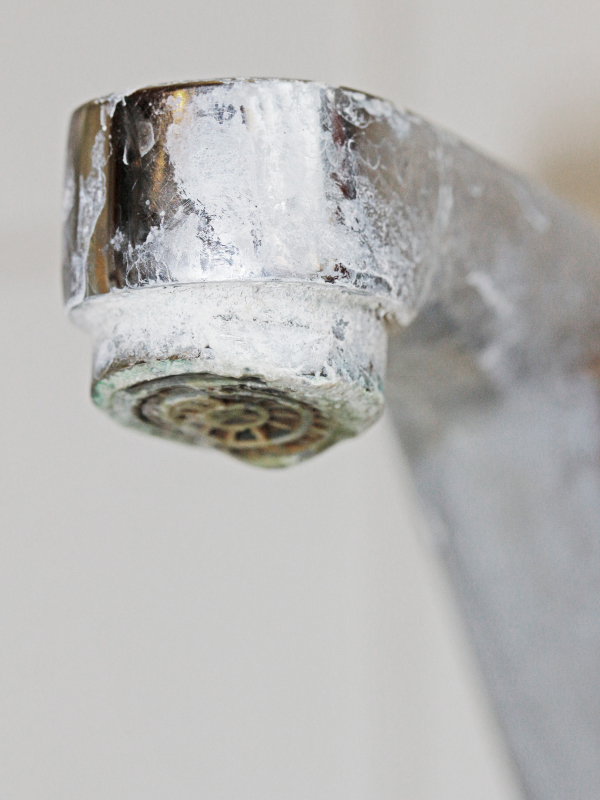
> When our water quality team measures hardness in the 3 GPG range or higher, we feel that’s an appropriate time to begin a conversation about potential hard water impacts and water treatment solutions we recommend considering. Even though water along the Front Range is generally on the hard side, it’s not a given that your water is hard enough to create cause for concern. Reliable water testing is the place to start, and Save Home Heat can help!
Hard water is not a health hazard
The presence of hardness in your home’s water is certainly not a reason to throw a red flag. It’s only when levels start getting too high that there is cause for potential concern. As a matter of fact, the National Research Council (National Academy of Sciences) states that drinking somewhat hard water contributes a small amount of calcium and magnesium toward the total of those minerals needed in the human diet.
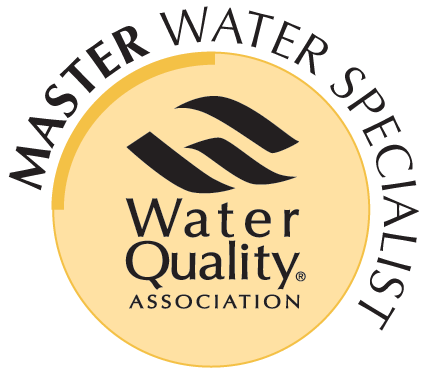
The catch is determining how much is good for you, and at what point does hardness become a cause for concern for you or your home. In the Denver-Boulder metro area, our water quality team at Save Home Heat Company can help you navigate these waters with expert, trusted advice that’s focused solely on your best interests.
The Potential Impacts of Hard Water
As we indicated above, hard water in your home’s water supply can have significant impacts on both your home’s plumbing system, as well as your health and wellbeing.
Hard water and your home’s plumbing system
One of the most common effects of hard water is limescale buildup, often associated with soap scum deposits in sinks and tubs, and powdery coatings on faucet and showerhead aerators. Hard water can also foul up the inner workings and lead to the premature failure of a wide variety of valves, including standard kitchen and bathroom faucets, and electronic water valves in appliances such as dishwashers and washing machines.
Hard water can even accelerate the deterioration process of the copper piping that delivers water all around your home – and we haven’t even gotten to the water heater yet!
The potential health and wellbeing issues associated with hard water include:
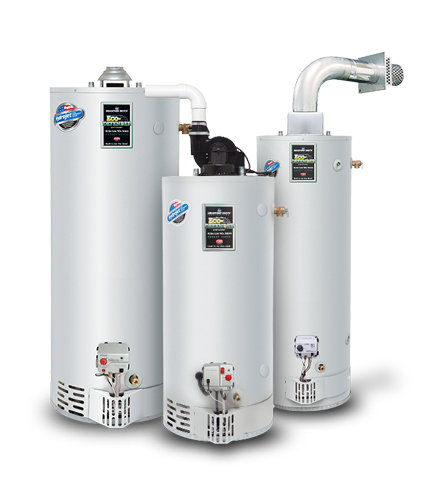
- Dry Skin & Hair – Hard water can irritate your scalp, causing itchiness and inflammation, and can make hair dry and dull
- Reduced Defense Against Bacteria – The minerals in hard water can alter the pH balance of your skin, reducing its ability to protect against bacteria and infections
- Digestive Issues – Drinking overly hard water can lead to gastrointestinal issues such as constipation, diarrhea, bloating, and IBS
- Cardiovascular Concerns – A number of studies have suggested that consistently consuming too-hard water can result in increased risk of high blood pressure and heart disease
- Kidney Stones – Kidney stone formation is more likely when urine contains high levels of minerals, and hard water comes up as one of the potential culprits in creating this environment in a person’s body
- Cancer Warning – While our desire is certainly NOT to be alarmist, some studies have also shown that higher levels of calcium and magnesium in water may increase the risk of gastric, rectal, and pancreatic cancers
While these potential impacts of hard water are not a given in many cases, hard water may be found on the list of potential contributors when one of these conditions is identified.
If hard water becomes a concern for you, a whole-house water softener typically tops the list of solutions. In the Denver-Boulder metro area, our water quality team at Save Home Heat Company can help you navigate these waters with expert, trusted advice that’s focused solely on your best interests and well-being.
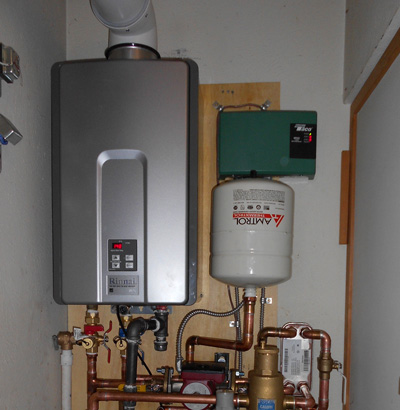
How Water Hardness Can Affect Your Water Heater
And now, as promised, our discussion of hard water and your water heater. Keep in mind that this applies to conventional tank type and whole-house tankless water heaters, as well as indirect-fired water heaters that are used with boiler systems.
Here’s some important things to keep in mind:
Efficiency: Hard water can impact the efficiency of your water heater by creating a barrier of scale deposits between the source of heat and the water that’s being heated in the tank or the tankless heater. Efficiency in transferring heat from the burners or heat source to the water is reduced by this limescale barrier.
Effectiveness: The effectiveness of a water heater can also be impacted by hard water, specifically its ability to replenish hot water as rapidly as possble. Similar to its affect on efficiency, limescale deposits are an impediment to achieving optimal recovery of hot water.
Lifespan: Scale deposits in a water heater can shorten its lifespan by placing additional stress on the system. Components such as gas valves and burners are forced to work longer and harder to get the job done, and the added thermal stress on a storage tank or heat exchanger can also affect the durability of the material. All it takes are one or two costly repair calls for the end of a unit’s serviceable life to come into question. In some cases, the needed repair may be so costly as to render the debate moot as to whether it makes sense to fix a unit.
Reliability: Related to the above, the additional stress that hard water can place on a water heater also increases the possibility of premature or unforeseen parts failures. If it pans out this way, reliability can become a concern that begins the discussion of a potential replacement heater.
Carbon Footprint: In the case of natural gas or propane-fired systems, it bares mentioning that a more efficient water heater translates to a smaller carbon footprint, with consumption of the fossil fuels natural gas or propane kept at a minimum. Hard water in a water heater can translate to wasted fuel and money, and an environmentally more impactful system – i.e. a larger carbon footprint. This is also something worth keeping in mind.
All of the above, once again, points toward a whole-house water softener as a great water quality solution to help safeguard your home comfort and your investments in your plumbing system.



The Water Softener Solution for Your Water Heater and More!
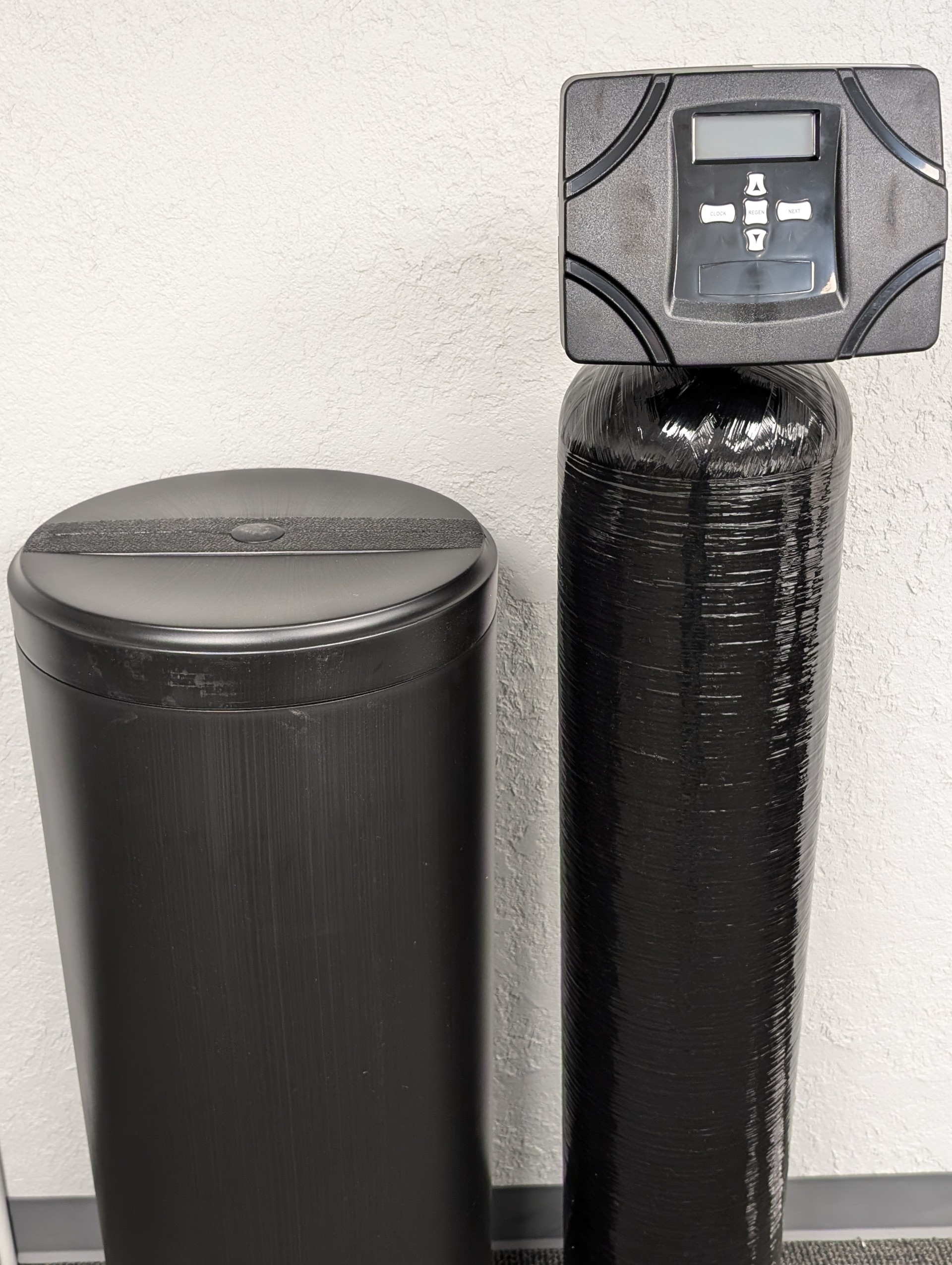
A water softener offers a range of benefits for both your home and your family. In its ability to effectively reduce hardness in your home’s water supply, foremost, a quality, proven water softener can enhance your personal wellbeing, providing significant hygiene and health benefits. In addition, a softener helps protect and extend the lifespan of your home’s plumbing system, including many different valves, faucets, shower controls, and the actual piping that circulates water all around your home.
Of course, there’s the primary focus of this post: The numerous benefits that a whole-house water softener can provide for your water heater. A properly specified, professionally installed, regularly maintained, proven water softener will help extend the life of your tank or tankless water heater, help reduce the likelihood of a costly parts failure, and help ensure that your heater operates as effectively and efficiently as the spec sheet says it should – for as long as it should!
A special note about water softeners and Tankless Water Heater maintenance: Periodic flushing of a tankless water heater is crucial to ensure its performance. A water softener can dramatically reduce the frequency that this service procedure needs to be performed for your tankless heater.
Looked at as a whole, it makes good sense for a homeowner who’s planning to stay put in their current home for a while to learn more about water softeners, and decide if one would be a good fit for your home and your water supply.
Get Your Water Tested & Consider a Water Softener for Your Denver-Boulder Home!
When it’s time to replace your current water heater, or if you’re exploring higher performing and high efficiency alternatives for your home in the Boulder-Denver metro area, our water quality team at Save Home Heat, lead by our WQA certified Master Water Specialist, recommends getting a quote for installing a whole-house water softener at the same time. As always, install quotes from our friendly team are highly informative, low-pressure, and free.
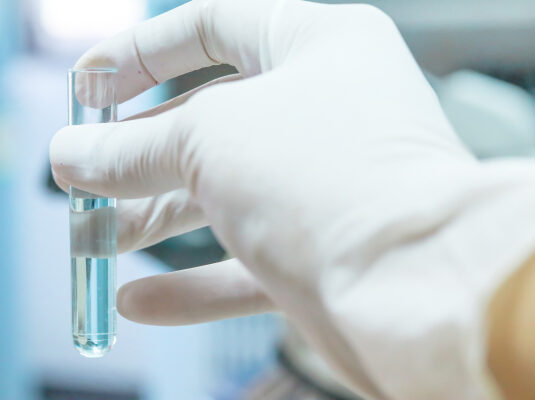
A Complimentary in-home water test!
When you contact Save Home Heat Company for a new water heater quote, be sure to ask for a free, complimentary water test during the process. The logical starting point for any conversation involving your home’s water quality is having your water tested first. It may end up being a good idea to learn about water treatment solutions at the same time – or then again, it may not be necessary. There’s no telling until an experienced water quality team takes a closer look.
Please reach out to our friendly team today for any of your hot water and water quality needs. Thank you for keeping Save Home Heat in mind for all your home plumbing needs.
Please contact me to schedule a water heater & water softener quote – and a free water test!




